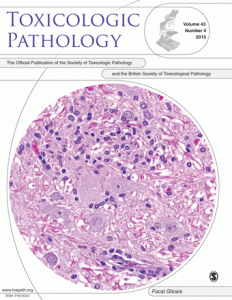 Researchers at the National Institute of Environmental Health Sciences have retracted a 2014 article after a review unearthed unresolved problems with the study’s control material.
Researchers at the National Institute of Environmental Health Sciences have retracted a 2014 article after a review unearthed unresolved problems with the study’s control material.
The retracted paper, “Effect of Temperature and Storage Time on Sorbitol Dehydrogenase Activity in Sprague-Dawley Rat Serum and Plasma,” looked to test the durability and stability of sorbitol dehydrogenase, an enzyme used to detect cancerous liver damage in rats.
Here’s the complete retraction notice from Toxicologic Pathology :
Continue reading “Values were outside expected ranges”: Toxicology paper spiked after audit

